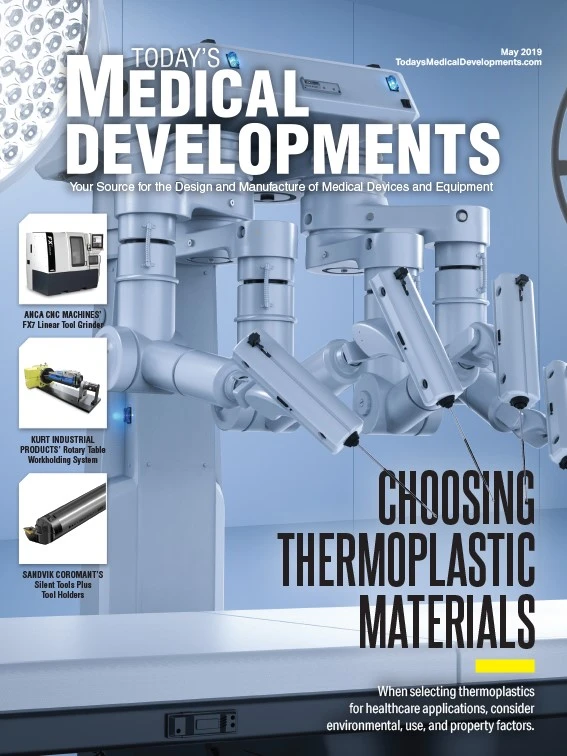
PHOTO COURTESY OF: SINTRATEC LTD.
Collaboration highlights AM capabilities for spinal implants
Renishaw’s collaboration with Irish Manufacturing Research (IMR) and nTopology demonstrates advantages of additive manufacturing (AM) for spinal implants.
IMR designed a sample titanium implant for the cervical spine using nTopology’s generative design software, then manufactured the implants using Renishaw’s RenAM 500M metal printer.
“AM can be used to manufacture spinal implants with lattice structures,” explains Ed Littlewood, marketing manager of Renishaw’s Medical and Dental Products Division. “An implant with a lattice structure is lightweight, can be optimized to meet the required loading conditions, and has a greater surface area, which can aid osseointegration. AM implants can be designed to mimic the mechanical properties of bone, resulting in better patient outcomes.”
“nTopology’s software was designed to complement existing workflows and make the job easier. We cut the design time of complex structures from days to minutes,” explains Matt Rohr, nTopology’s application engineering manager.
“Together, we designed a set of experiments that yielded the most appropriate parameter settings for the product. As a result, we reduced the amount of post-processing required on key features of the implants by a factor of ten,” comments Sean McConnell, senior research engineer at IMR.

Shapeways, EOS partner for orthosis, prosthesis
For the orthosis & prosthesis (O&P) market, Shapeways is offering PA11 bio-degradable, nylon material. Availability of this material comes from an ongoing partnership between Shapeways and EOS. Naturally sourced from castor oil and known for its elastic and impact-resistant nylon properties, selective laser sintered (SLS) PA11 is one of the fastest growing markets for additive manufacturing (AM).
PA11 material is already qualified for various industry applications, such as medical, automotive, and other high-performance uses, and suitable for aerospace and electronics. With greater strength and flexibility, PA11 is a ductile material with high elongation at break, suitable for high-impact customized parts such as prosthesis, braces, insoles, and other exterior medical needs. PA11 is available in a natural white finish and can be dyed. EOS was one of the first AM brands to partner with Shapeways at its launch in 2007, and Shapeways houses dozens of EOS AM machines in its facility.

Modular, compact selective laser sintering system
Sintratec Ltd., Swiss developer of the scalable Sintratec S2 selective laser sintering (SLS) system, offers consistent results in rapid prototyping and rapid manufacturing. With a closed-loop workflow for processes from printing to post-processing, the S2 allows quick material changes and printing with little interruption. Interchangeable material core units (MCU) enable fast, contamination-free material swaps. A de-powdering system and two additional modules for post-processing (a sand blasting module and a polishing module) provide fast finishing.
Additional modules can be integrated into the system, such as a second laser sintering station or another material handling station, increasing the system’s materials flexibility and output capacity. The S2’s printing area and ring lamps evenly distribute heat during printing while a 4K camera monitors the process.

Explore the May 2019 Issue
Check out more from this issue and find your next story to read.
Latest from Today's Medical Developments
- IMTS 2026 runs Sept. 14-19 at McCormick Place in Chicago, Illinois
- Master Bond’s MasterSil 800Med
- ZEISS celebrates 100 years of advancing innovation in the US
- Teleflex sells acute care and urology businesses for $2.03 billion
- HANNOVER MESSE: Where research and manufacturing meet
- What’s next for the design and manufacturing industry in 2026?
- Arcline to sell Medical Manufacturing Technologies to Perimeter Solutions
- Decline in German machine tool orders bottoming out





